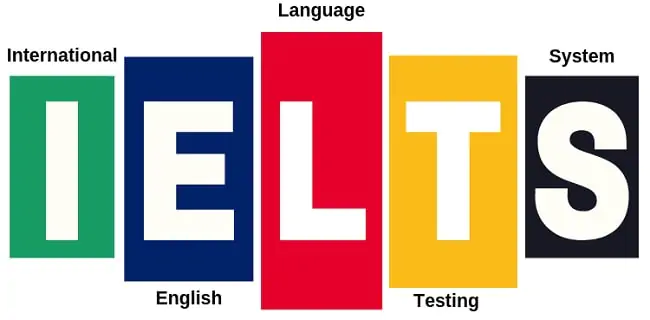IELTS
(International English Language Testing System)

- The International English Language Testing System, or IELTS, is an international Standardised test of English language.
- It is jointly managed by the British Council, IDP: IELTS Australia and Cambridge English Language Assessment were established in 1989.
- IELTS is one of the major English-language tests in the world, others being the TOEFL, TOEIC and OPI/OPIc.
- IELTS Test Structure
- Scoring
Academic Module :
- IELTS Academic is intended for those who want to enroll in universities and other institutions of higher education and for professionals.
General Training Module :
- IELTS General Training is intended for those planning to undertake non-academic training or to gain work experience, or for immigration purposes.
The IELTS test has four parts
- Listening: 30 minutes (plus 10 minutes transfer time)
- Reading: 60 minutes
- Writing: 60 minutes
- Speaking: 11–14 minutes
Scores | Results | competence in English |
9 | Expert User | Appropriate, accurate and fluent with complete understanding. |
8 | Very Good User | Misunderstandings may occur in unfamiliar situations. Handles complex detailed argumentation well. |
7 | Good User | Generally handles complex language well and understands detailed reasoning. |
6 | Competent User | Can use and understand fairly complex language, particularly in familiar situations. |
5 | Modest user | Should be able to handle basic communication in own field. |
4 | Limited User | Basic competence is limited to familiar situations. Is not able to use complex language. |
3 | Extremely Limited User | Conveys and understands only general meaning in very familiar situations. Frequent breakdowns in communication occur. |
2 | Intermittent User | Has great difficulty understanding spoken and written English. |
1 | Non User | Essentially has no ability to use the language beyond possibly a few isolated words. |
0 | Did not attempt the test | No assessable information provided at all. |
